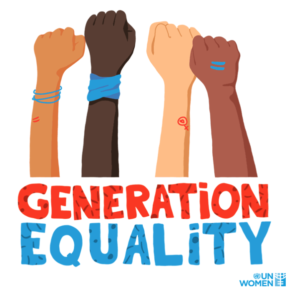The need for more attention to be paid to intersectional caste and gender discrimination and for transforming mindsets through human rights education and awareness raising, was highlighted at the UN multi-stakeholder hearing ‘Accelerating the Realization of Gender Equality and the Empowerment of all Women and Girls’ on 21 July.

The hearing was held virtually and brought together representatives of UN Member States and members of specialized agencies, intergovernmental organisations, parliamentarians, civil society organizations, national human rights institutions, academic institutions and the private sector. IDSN International Associate, The International Movement Against All Forms of Discrimination and Racism (IMADR), facilitated the participation of several of the Dalit women activists.
Judith Anne, of the National Dalit Movement for Justice (NDMJ-NCDHR) spoke at the hearing, highlighting the need for increased awareness of human rights at all levels of society.
“Change is possible when we have a feminist transformative agenda and work with the young girls and boys through the education system in building human rights perspective, addressing diversity, inculcating gender neutral life skill training for all children in school syllabus to order to counter barriers posed by gender stereotypes, castes and other minority issues,” Judith Anne commented.
She also spoke up about the rising cases of gender and caste-based violence in India during the Covid-19 lockdown period, underscoring the discriminatory and patriarchal mindset in her society.
Dalit women activists Aachal Sijapati and Sabitri B K, from the Feminist Dalit Organisation (FEDO) in Nepal, also participated in the hearing and reflected on some of the take-aways.
“’Gender Equality is not a woman’s issue but a human issue’, is my biggest learning from the event. Getting an opportunity to hear the experience and perspective of distinguished personalities working for the right of women and girls across the world was indeed a brilliant learning opportunity for a Dalit youth like me,” said Aachal Sijapati.
“I believe this platform will definitely help me in contributing to work for gender equality and equal rights and opportunities for Dalit and marginalized girls and young women.”
Her colleague Sabitri B K commented on the importance of Dalit women in leadership roles saying,
“Those inspiring people in the panel made me more inspired to work for equality. Women leadership roles in every sector will help to reach equality in the near future. I shared this experience with my team and it led us to work more hard to reach leadership roles in the near future.”
The President of the General Assembly will prepare and circulate a summary of the interactive multi-stakeholder hearing prior to the high-level meeting of the General Assembly.
